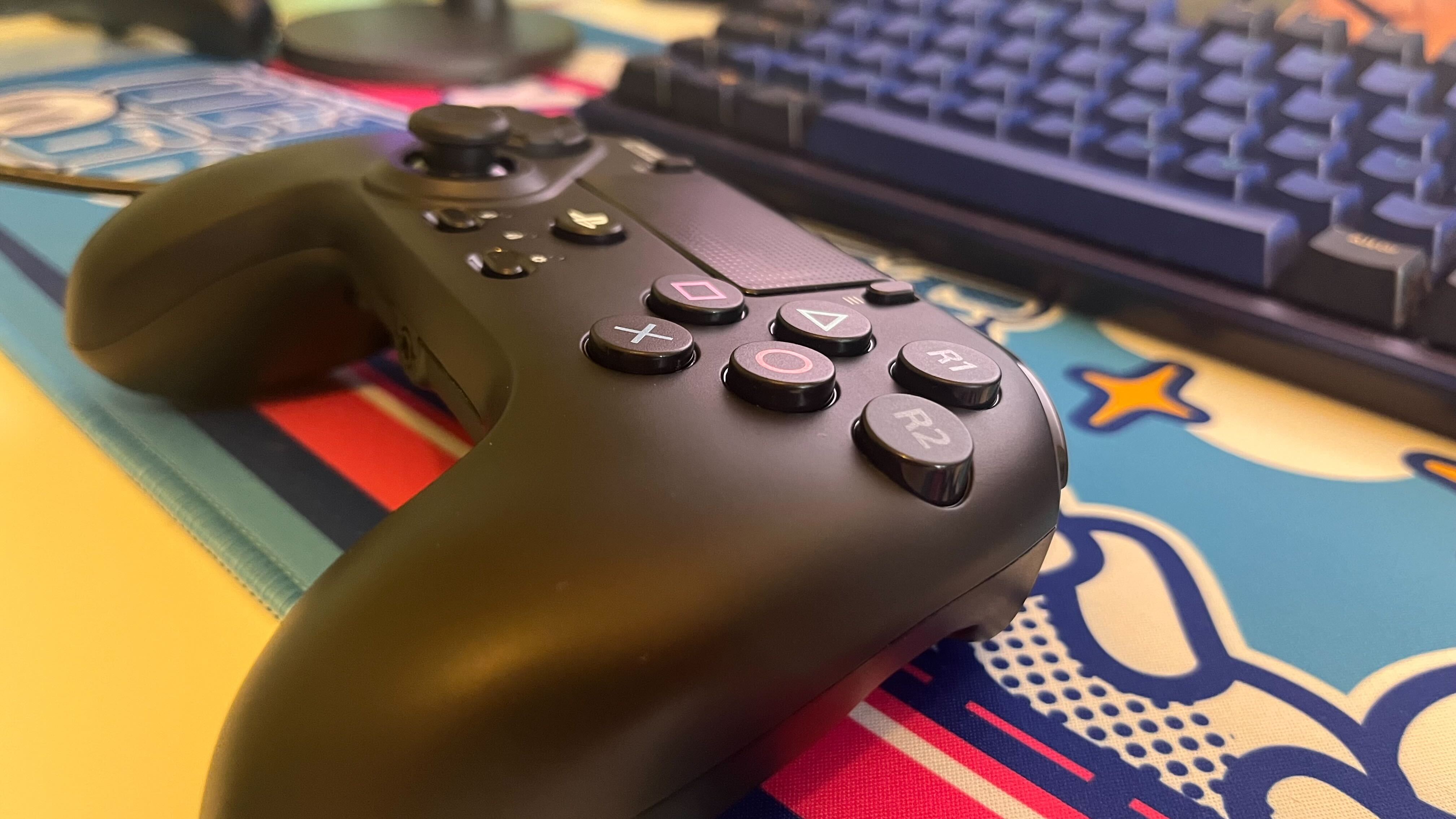TechRadar Verdict
With its fantastic buttons, excellent D-pad, and sublime layout, the Hori Fighting Commander Octa for PlayStation 5 is a worthy DualSense alternative for fighting games. The cheap-feeling build and occasional missed input while using the thumbstick, however, hold it back from a glowing recommendation.
Pros
- +
Lovely micro switch buttons
- +
Formidable D-pad
- +
Excellent layout
Cons
- -
Build feels cheap
- -
Awkward thumbstick
Why you can trust TechRadar
If you’re searching for a wired fighting game controller, then the Hori Fighting Commander Octa for PlayStation 5 is a solid choice. Its six face buttons are pleasantly tactile and responsive with an intuitive layout that’s ideal for many of the best fighting games. Even though it takes some getting used to, the D-pad is also a major improvement over the one found on the DualSense Wireless Controller thanks to a concave design that makes it far easier to execute complex inputs.
Unfortunately, the thumbstick holds it back from being one of the best PS5 controllers as it can be quite fiddly as a result of its small size and octagonal gate (an octagon-shaped ring around the base of the thumbstick). While it’s not unusable, those who prefer to play fighting games with a thumbstick would be better served by the PS5’s own controller or even one of the best fight sticks. It’s also hard to ignore the fact that the controller is very lightweight and feels quite cheap and hollow in the hands, which is disappointing given the steep $59.99 / £51.99 / around AU$94.95 price tag.
Design and features
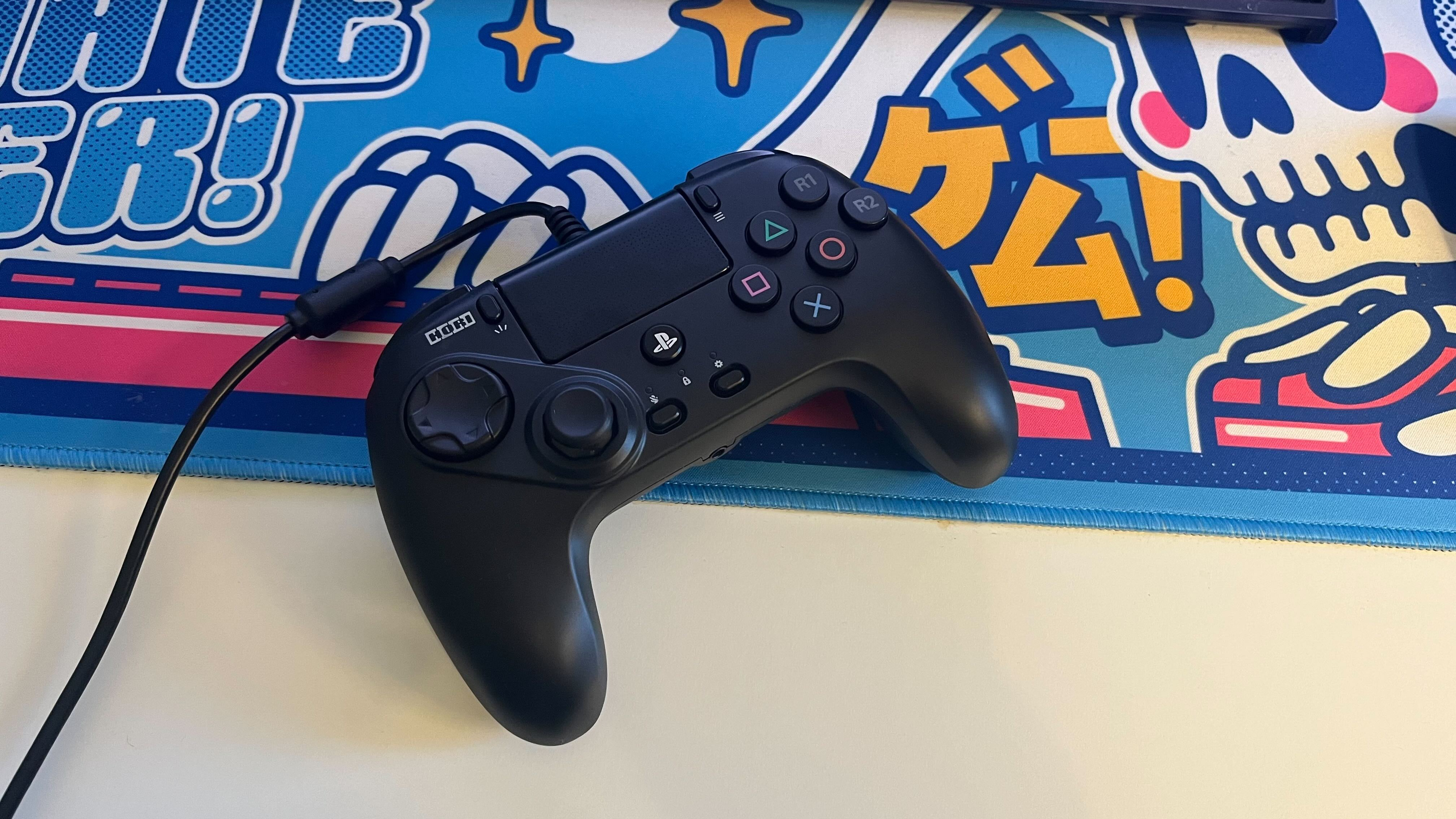
The overall design of the Hori Fighting Commander Octa for PlayStation 5 is an interesting mish-mash of elements from both the DualSense and the PlayStation 4’s DualShock 4 controller. It roughly maintains the form factor of the DualSense but is a little wider with shorter grips and a 10ft / 3m non-detachable USB cable sticking out the top. Its buttons and touchpad look more like those found on the DualShock 4, but several key differences set them apart.
Firstly, the buttons use tactile micro switches that offer incredibly satisfying and tangible input actions. They’re also slightly larger than the buttons of a standard controller, making it a little easier to reposition your fingers quickly. There’s also the matter of the controller’s layout, which follows a typical ‘fighting controller configuration’. This means that R1 and R2 buttons have been repositioned next to the face buttons, allowing for much speedier access to more inputs - something that could be a huge benefit in games that use those inputs to block or trigger special attacks.
There are still shoulder buttons and basic triggers on the controller, with the left set mapped to R3 and L3 and the right set mapped to L1 and L2. Unlike the face buttons, these shoulder buttons do not use micro switches and feel noticeably mushier. The right thumbstick has been removed entirely, with the additional space now occupied by a large home button, a mic mute button, a function button, and three accompanying status LEDs. The left thumbstick is slightly smaller than that of a DualSense, with a thicker base and an octagonal gate that forces it into one of eight possible directions.
The controller’s D-pad has a concave shape and is clearly intended to be used with your thumb positioned in its center. It’s a significant departure from the design of the DualSense D-pad - which requires you to lift your thumb to hit different directions - and is a dramatic improvement on the whole. Diagonal inputs in particular feel considerably more precise and the ability to roll the tip of your thumb to execute complex directional movements in a single fluid motion is very welcome.
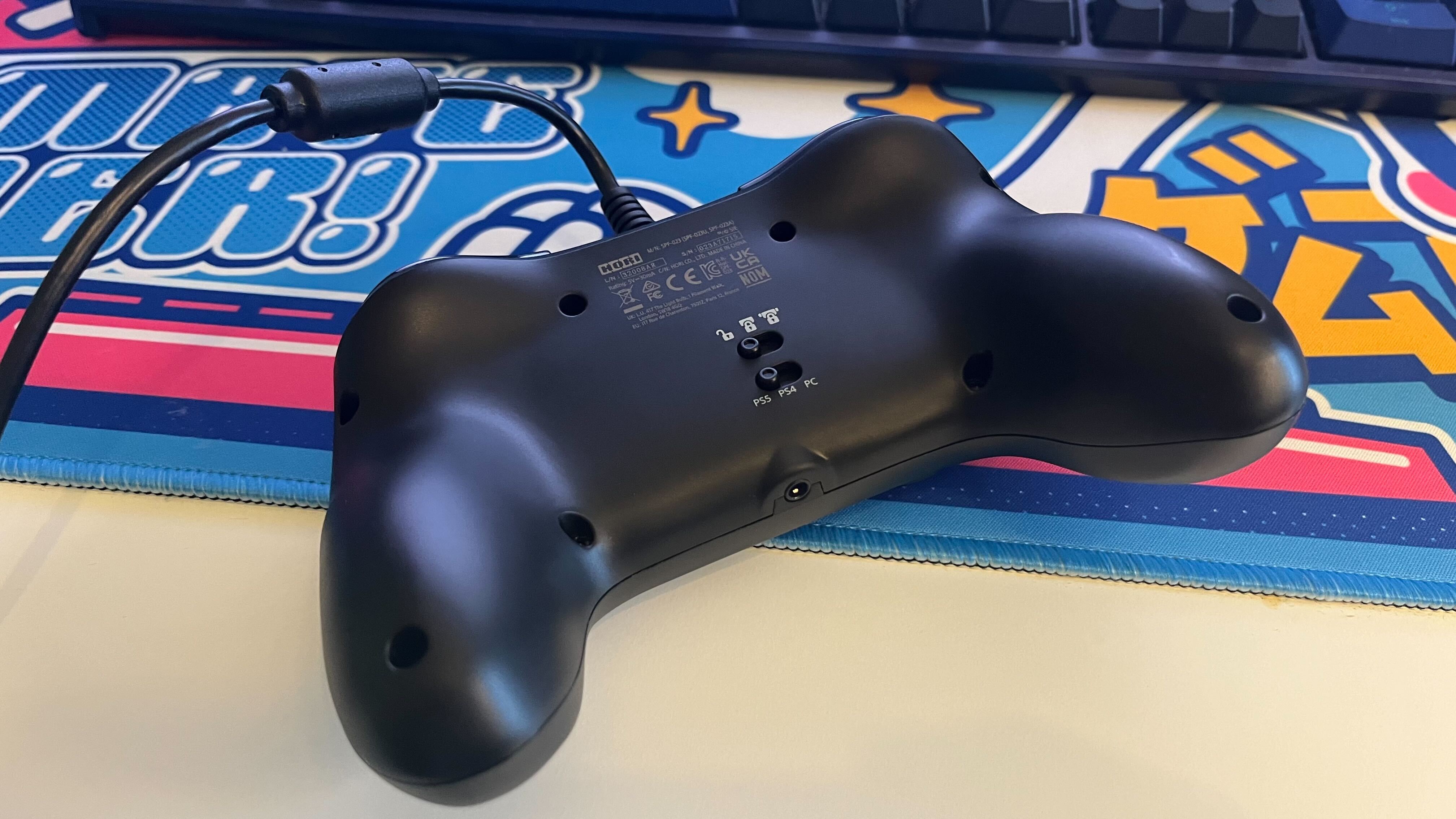
Above the D-pad is the usual create button, alongside a touchpad and the options button. Despite how it looks, it’s worth noting that the touchpad is not touch-sensitive but can still be pressed down like a regular button input. There is also a standard 3.5mm jack for use with a compatible wired gaming headset on the bottom of the controller. If you flip the controller over, you will find two small switches. The first allows you to disable the touchpad, options, and screenshot button. The second lets you alternate between PS5, PS4, and PC compatibility.
Although certain features are unavailable while playing on PC, such as the headphone jack and touchpad button, the controller is compatible with the Hori Device Manager software. This lets you save up to four custom button profiles, which can be alternated through the function button. The software is a bare-bones affair but is easy to use and performs its limited functions well.
Performance
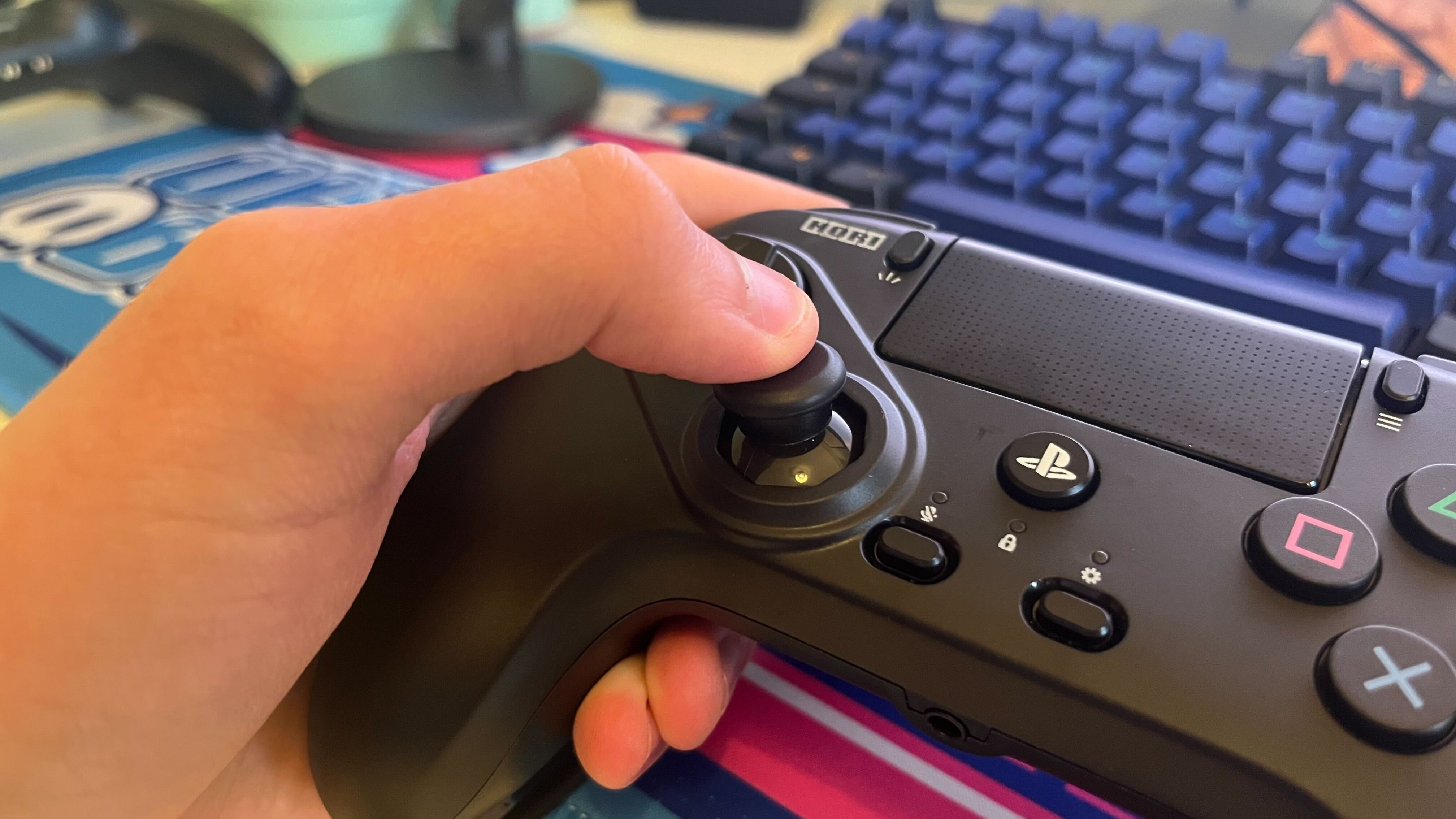
The Hori Fighting Commander Octa for PlayStation 5 is at its absolute best when you’re using the D-pad. It’s reliable and remains very comfortable over extended play sessions, with its concave layout allowing for far smoother motion than the flat D-pad of the DualSense. The responsive face buttons also perform very well and have a low actuation point that helps reduce fatigue after particularly intensive combos.
Diving into some online matches of Granblue Fantasy Versus: Rising, the Hori Fighting Commander Octa for PlayStation 5 almost immediately improved my performance. The positioning of the R1 button next to the face buttons made executing Skill attacks (which require the R1 button to be held) faster and much more comfortable. Its precise micro switches also helped prevent the more frantic button mashing encouraged by the spongier DualSense buttons. It took a few moments to loosen up, but the D-pad also felt much less sharp on the tip of my thumb.
Unfortunately, the controller’s weaknesses became much more apparent when I switched over to using the thumbstick. It largely functions adequately but I found that I occasionally missed diagonal inputs thanks to the octagonal gate, which caused me to skirt over corners while attempting a full rotation. Octagonal gates might be a popular choice on many fight sticks, but their inclusion on a small thumbstick seems poorly judged.
The controller’s overall shape can also be an inconvenience depending on your playstyle. If you’re going to be using this controller with the popular ‘claw grip’, then the large right-hand grip makes it difficult to position on a table or rest on your leg.
There’s also the matter of its build. I didn’t experience any issues with the quality of the controller during my testing, but it just feels incredibly cheap in the hands. It's eerily light, coming in at roughly 4.2oz / 120g, and feels very hollow too, leaving me a little wary of gripping it with too much force during more intense moments. Wired controllers are often on the lighter side, but it’s not unreasonable to expect a product that costs just $10 / £8 shy of the DualSense to feel more substantial.
Should I buy the Hori Fighting Commander Octa for PlayStation 5?
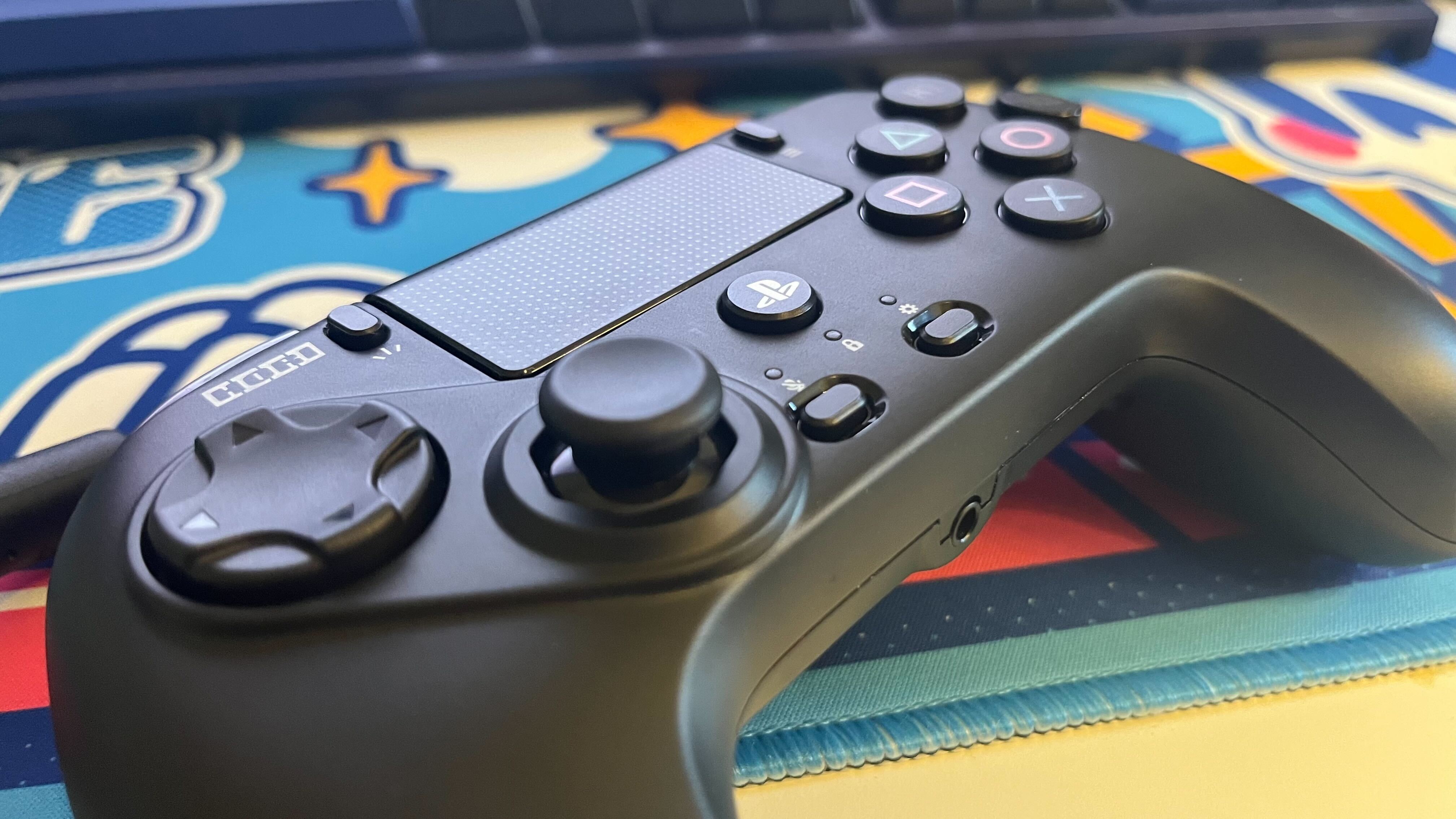
If you’re a fighting game player who often uses the D-pad, then the Hori Fighting Commander Octa for PlayStation 5 is a solid choice. Although the cheap feeling build is a letdown, compared to the DualSense it offers a better D-pad, a more convenient layout, and far superior micro switch buttons. Those who prefer to play using a thumbstick, however, should consider other options.
Buy it if…
You play fighting games with a D-pad: With its superb concave design, the D-pad is one of the highlights of the Hori Fighting Commander Octa for PlayStation 5.
You appreciate tactile buttons: The clicky micro switch face buttons are another huge benefit of this controller. They simply feel great and perform well.
Don’t buy it if…
You want something more substantial: There’s no getting around the fact that the Hori Fighting Commander Octa feels cheap and flimsy in the hands.
You want to rely on the thumbstick: The thumbstick can be unreliable, missing diagonal inputs due to the octagonal gate, which could be a dealbreaker.
How we reviewed the Hori Fighting Commander Octa for PlayStation 5
I used the Hori Fighting Commander Octa for PlayStation 5 as my main fighting game controller for well over a month. During that time, I played numerous matches of the excellent Granblue Fantasy Versus: Rising in addition to a fair amount of Mortal Kombat 1 and a little Dead or Alive 5 Last Round. In addition to PS5, I I tested the controller on PC and made sure to experiment with the compatible Hori Device Manager software to test all of its features and functionality.
For more on fighting games, check out our Tekken 8 review or learn why you should start with Granblue Fantasy Versus: Rising if you want to get into the genre.

Dash is a technology journalist who covers gaming hardware at TechRadar. Before joining the TechRadar team, he was writing gaming articles for some of the UK's biggest magazines including PLAY, Edge, PC Gamer, and SFX. Now, when he's not getting his greasy little mitts on the newest hardware or gaming gadget, he can be found listening to J-pop or feverishly devouring the latest Nintendo Switch otome.
